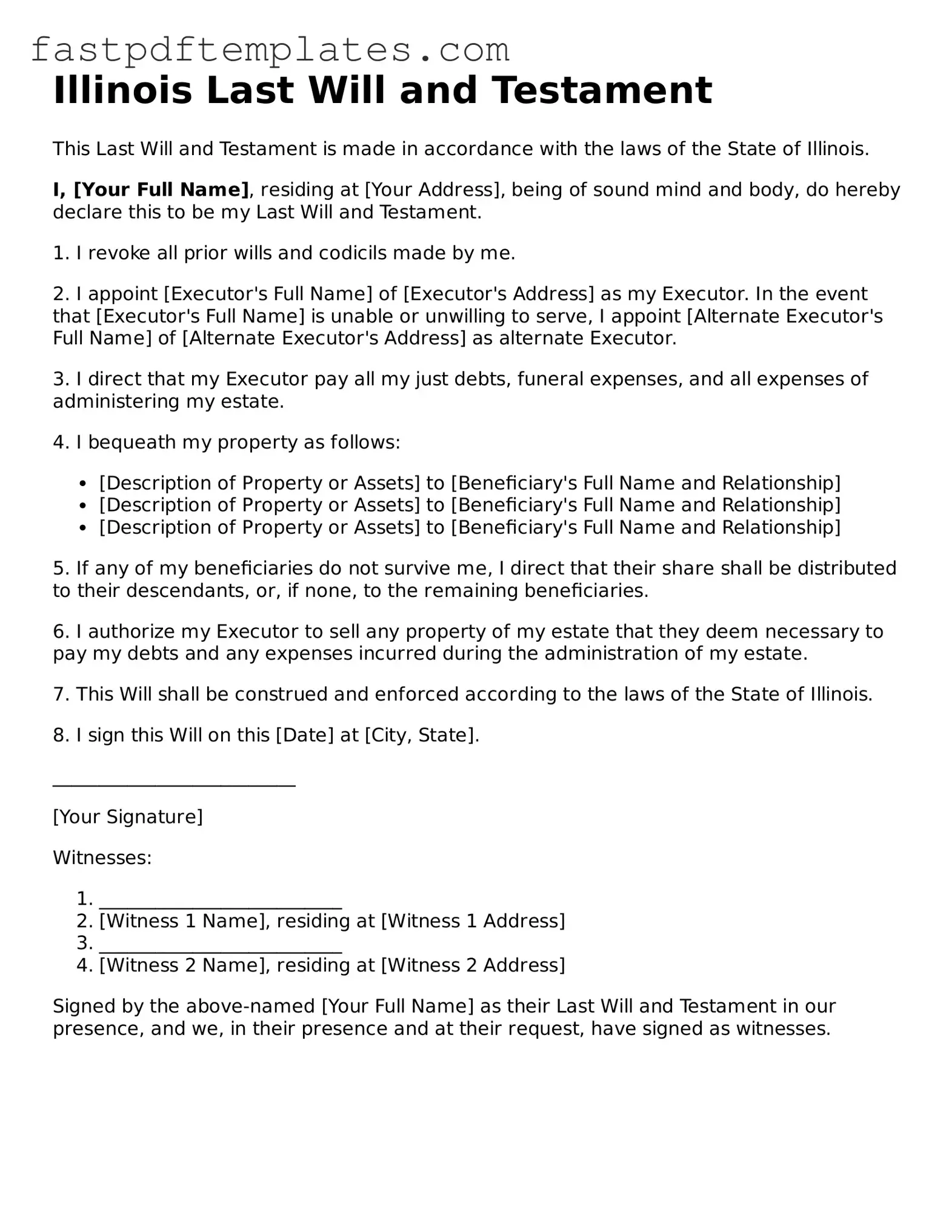Attorney-Approved Illinois Last Will and Testament Document
The Illinois Last Will and Testament form is a legal document that allows individuals to outline their wishes regarding the distribution of their assets after death. This form ensures that a person's intentions are honored and provides clarity to loved ones during a difficult time. Understanding how to properly complete and execute this form is essential for anyone looking to secure their legacy.
Access Document

Attorney-Approved Illinois Last Will and Testament Document
Access Document
Your form still needs completion
Complete your Last Will and Testament online and download the final PDF.
Access Document
or
Click for PDF Form
